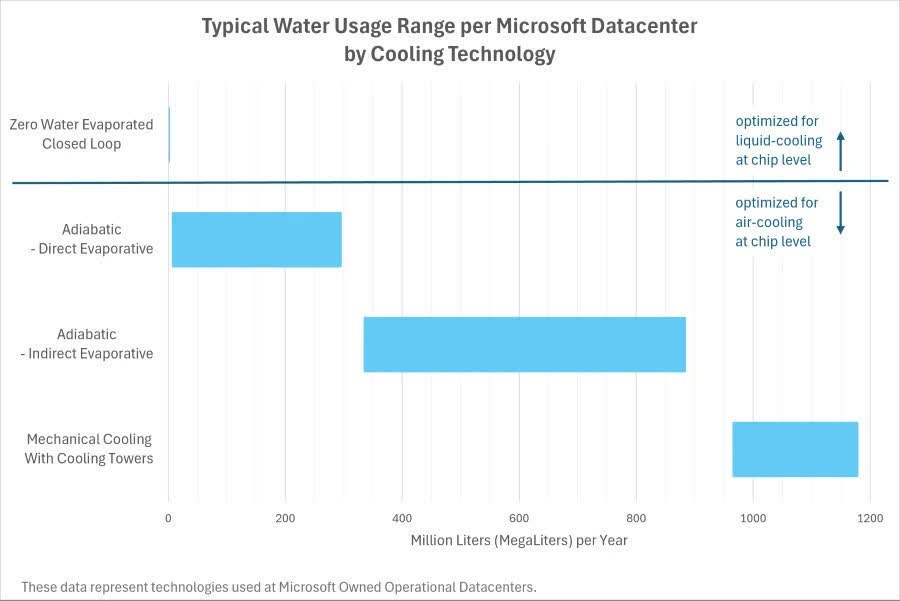Serving tech enthusiasts for over 25 years.
TechSpot means tech analysis and advice you can trust.
Why it matters: Operating data centers requires a lot of energy, and the enormous amount of water used to cool them is a growing environmental concern. As the expansion of AI data centers exacerbates the problem, tech giants are searching for ways to mitigate their environmental and climate footprint. Microsoft believes that recycled water holds the key.
Microsoft's latest data centers will employ a new cooling system that doesn't draw water from the surrounding environment. The design aims to address environmental concerns as the AI boom drives data center construction.
Although the company calls its new design a "zero-water" system, it still uses water to cool its servers. Unlike traditional data centers that divert and evaporate billions of gallons per year, Microsoft's new system recycles its water between servers and chillers in a closed loop that requires no new water following initial construction. Like any normal building, only the kitchens and restrooms require external water.

The company plans to continue using older air-cooled and water-cooled facilities with traditional cooling systems but is gradually working to reduce its water usage. Since 2021, the total water consumption from Microsoft's data centers has fallen 39 percent from 0.49 to 0.3 liters per kilowatt hour.
However, the new system, which the company plans to use for all its future data centers, reduces that number to nearly zero. New facilities will begin employing it in Phoenix, Arizona, and Mt. Pleasant, Wisconsin in 2026, and more in other locations are planned for 2027. Microsoft estimates that each data center using the new design might save over 125 million liters of water annually.
The primary drawback is increased energy usage, but new chip-level cooling methods that enable higher operating temperatures might moderate the impact.
Multiple groups are proposing other methods of improving server cooling to minimize water consumption. A recent study from the University of Texas describes a mechanochemically engineered alloy that substantially improves liquid metal cooling. Additionally, the US Department of Commerce recently promised millions in CHIPS Act funds to an Oakland company that proposed integrating diamond – a superior thermal conductor – into semiconductors.
However, the most ambitious plan for efficiently operating data centers might be to launch them into orbit. According to a European venture, operating data centers in space would remove the requirement for water cooling and enable them to use unlimited solar energy.










 English (US) ·
English (US) ·